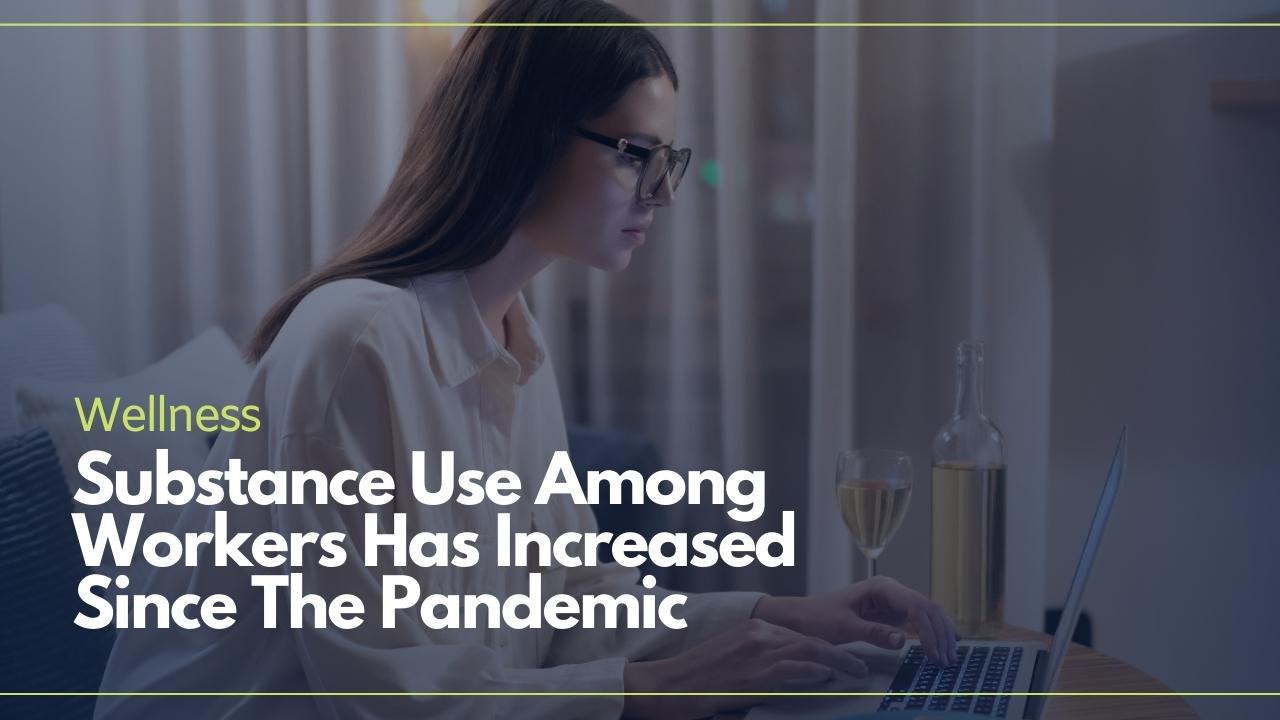- A recent report from LifeWorks found that drug use among Americans has increased since the pandemic.
- Workers using alcohol and drugs have the least favorable mental health and isolation score.
- Almost half of workers using drugs or alcohol do not know whether their employer offers any treatment resources or are not sure what is offered.
LifeWorks’ special edition report “The Mental Health Index : Spotlight on addictions in collaboration with the Hazelden Betty Ford Foundation” found that drug use among Americans has increased since the pandemic and that those who increased their substance use report the least favorable mental health and isolation score.
Previous reports from LifeWorks have found that the mental health of American workers has deteriorated over the past 18+ months. In fact, April’s Mental Health Index report revealed a negative mental health score for Americans for the thirteenth consecutive month.
Last month (May), LifeWorks found a net increase in mental stress compared to April. The May score of 53.5 “indicates that 17 percent of the population is experiencing more mental stress compared to the prior month” Once more, LifeWorks’ research identified a continued increase in mental stress since April 2020, which indicates a significant accumulation of strain in the American population.
The stress and anxiety created by the onset of the COVID-19 pandemic are, in large part, to blame for the deteriorating state of workers’ mental health. Job and financial security, isolation, workload, and uncertainty have all negatively impacted mental health over the past year and a half.
To cope with the stress and anxiety, many workers have turned to alcohol and drug use, LifeWorks’ report found.
Alcohol and Drug Use: Key Findings from LifeWorks
- Nearly one-third of Americans that use alcohol have increased their consumption since the pandemic.
- 6% of alcohol users consume 15 or more drinks per week compared to 2% in the pre-2020 benchmark.
- More than one-quarter (29 percent) of Americans that use drugs report an increase in drug use since the onset of the pandemic.
- One in four indicate that alcohol or drugs have made it difficult to complete job-related tasks and responsibilities.
- People who use medications more than prescribed are more than five times more likely to report difficulty completing job-related tasks and responsibilities at least once per week than those who use their medication as prescribed.
- 19% miss work or call in sick at least once per week due to alcohol or drug use.
- Nearly one in four (24 percent) report that alcohol or drugs have had an impact on home or family-related tasks and responsibilities.
- Parents report more substance use than non-parents and indicate an impact on their work and home lives.
- Managers are more than three times as likely as non-managers to use medical cannabis or to vape.
Work and Substance Use: What Can Companies Do?
The report found that substance use is affecting both job and home-related tasks and responsibilities. Workers are mainly using alcohol and drugs to relax and unwind; other reported causes for turning to drugs and alcohol include “to feel good”, to socialize, and to have fun.
Interestingly, 14% report turning to drugs and alcohol to cope with stress levels, driven mainly by money and financial concerns. This group in particular has the least favorable mental health score, at –25.8.
Studies have found that when the mental health of employees is suffering, their performance and productivity levels suffer. Over the past few years, companies have started to prioritize mental health benefits for employees; with the onset of the pandemic, many organizations revamped their mental health offerings to better support employees during these challenging times.
While 44% of those using alcohols and drugs believe they can self-manage or change on their own; 22% believe are worried that treatment would not be effective and 16% are concerned about what friends and family might think.
To help workers struggling with substance abuse, companies need to be transparent about the type of resources they offer employees as part of their benefits package. Only 26% of workers report that their employer provides resources to help with problem drinking or drug use. Unfortunately, 44% either do not know whether their employer offers any resources or are not sure what is offered.
Why Action Is Needed Now
The report found that those who are missing work due to substance use have significantly lower mental health scores than those who do not miss work. The higher the substance use, the more likely that people will report poor mental health.
More importantly, it seems that workers are aware of their problem; 26% of those surveyed regret their spending on substances.
However, the report found that the lowest mental health score is among one percent of people who sought treatment but were unable to afford it.
This is where companies come in.
“Among people who report receiving treatment, more than one-third (37 percent) report using their Employee Assistance Program (EAP), followed by twenty-nine percent using their employer’s insurance program, and twelve percent using a community mental health treatment.”
What this shows is that employees who have access to the substance use treatment options are taking advantage of them to get the support they need.



 Dr. Gleb Tsipursky – The Office Whisperer
Dr. Gleb Tsipursky – The Office Whisperer Nirit Cohen – WorkFutures
Nirit Cohen – WorkFutures Angela Howard – Culture Expert
Angela Howard – Culture Expert Drew Jones – Design & Innovation
Drew Jones – Design & Innovation Jonathan Price – CRE & Flex Expert
Jonathan Price – CRE & Flex Expert













